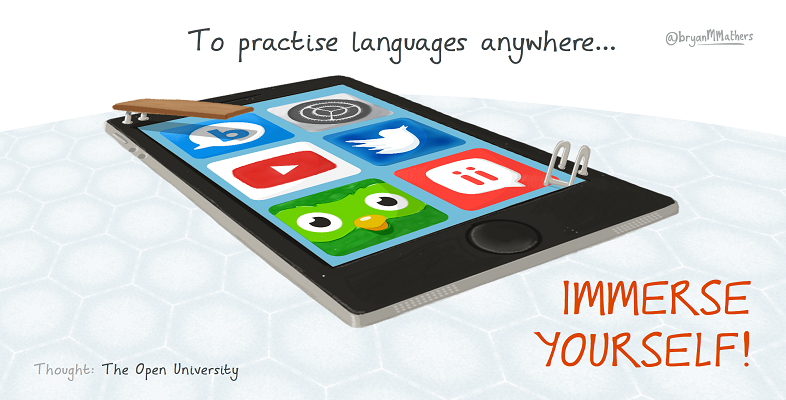3.3 Methodological
You have already noted that learning a language means learning the words, phrases, grammar and so on, but how? How do you memorise the vocabulary, master the grammar or learn to understand native speakers?
When I first started learning languages on my own, aged 19, the only experience I had was that of my language classes at school. As a student, I wasn’t particularly interested in languages and didn’t have a very positive learning experience. In French class, we would practise giving directions to the station ad infinitum. For homework, we would have a list of ten French words to memorise.
When I suddenly discovered a desire to learn languages as an adult, the only way I knew how was to get a textbook and start memorising words. Needless to say, I didn’t learn much at first.
Over the years, as I learned more languages, I began to notice new things that worked – often discovering them by accident. When I trained as a language teacher, I discovered many formal language teaching methodologies, such as the Audio-Lingual Method and the Communicative Approach.
The kind of questions I began to ask and answer are:
- Which activities are most effective?
- Should I study by myself or find a teacher?
- How should my method change as I become more proficient?
- Does watching movies help?
I noticed that, as I became a better language learner, I developed certain skills:
- Self-monitoring (DeKeyser, 2007) – being able to identify my own strengths and weaknesses as a speaker of a foreign language without relying on someone to point them out to me
- Noticing (Schmidt, 1990) – being able to read or listen to the language I was learning and notice important features, enabling me to improve independently
- Obtaining feedback (Little and Ushioda,1998) – seeking out people, such as language exchange partners, who could give me feedback on my speaking. For example, by correcting what I say or answering my questions.
These days, I have all but stopped following any one method, and simply learn languages in the way I have realised are most effective – at least for me.
And it’s that last bit that’s key: For me.
There are many ways to learn a language, and your goal should be to figure out what works for you personally. The key to becoming a successful language learner and developing the ability to learn languages quickly is to discover how you learn best.
Learning a language means discovering how you learn best.
